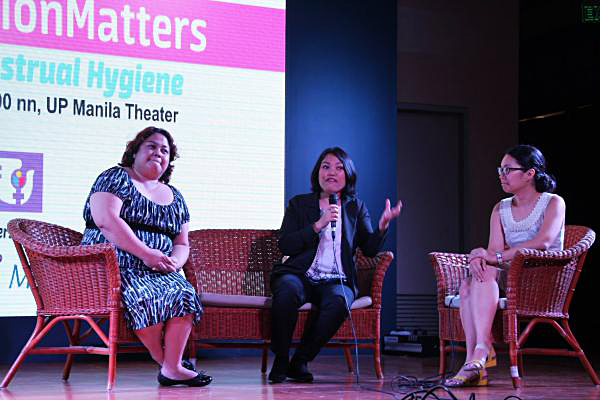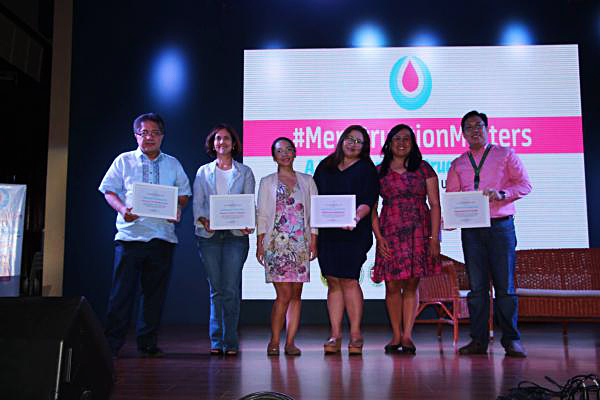Philippines joins Menstrual Hygiene Day observance for the first time

The Philippines has joined other 34 countries around the world in support of the international observance of Menstrual Hygiene Day by holding a forum and conduct of other multimedia campaigns.
On May 26, the Philippine Commission on Women (PCW), in partnership with the Department of Health (DOH), Department of Education (DepEd), University of the Philippines Manila, DDB Group Philippines, and Modess Philippines, collaborated in holding the #MenstruationMatters: A Forum on Menstrual Hygiene held at the UP Manila Theatre.
Over 230 individuals from public and private schools, national government agencies, and non-government organizations joined the forum which debunked myths and misconceptions on menstruation as it promoted menstrual health management.

In her opening remarks, PCW Deputy Executive Director Cecile B. Gutierrez said that the Forum provides a platform to talk about menstruation, which is one of the least discussed topics in Filipino homes. She likewise emphasized that menstruation is normal and women should not be afraid and ashamed of it.
“Menstruation should not get in the way of having fun and enjoying life. It should not stop us from being who we are and for doing what we love to do,” she added.
Myths and Facts
Dr. Melissa Sena of DOH discussed the changes in women’s body brought about by menstruation. She also explained the repercussions of menstruation and shared tips on how to protect oneself every menstrual period where women are most vulnerable to infection.
Dr. Ella Naliponguit of DepED meanwhile underscored the importance of looking into the overall menstrual health management, wherein menstrual hygiene is part of. She shared the department’s crucial role in spreading awareness in menstrual hygiene. She also shared the struggles that young women and girls face in schools, particularly in the rural areas, and the DepEd’s ways forward to address the situation.
Dr. Natasha Esteban of the Philippine General Hospital Adolescent Medicine, on the other hand, awakened the first-hand experiences of the audience during their menarche by enumerating the tale-old beliefs on menstruation and later classifying these into myths and facts. Some of the myths and facts that she shared include:
• Myth: When you get your period for the first time, you have to jump and down three times or three steps down to make your period last for only three days.
Fact: Girls cannot control how long their periods would last. A menstrual period usually lasts from three to five days, but some lasts for two to seven days.
• Myth: When you get your period for the first time, wash your underwear and use it to wipe your skin. This keeps the pimples away.
Fact: This ritual has no connection with pimples, however, this may be unsanitary. “Menstrual acne” may also be common in some women due to hormonal shifts during the menstrual cycle.
• Myth: Don’t take a bath during your period; otherwise, you’ll experience insanity, infertility, or hair loss.
Fact: It’s actually very important for girls to clean their bodies during their period; otherwise, they may develop vaginal infections since blood could serve as a medium for bacteria.
• Myth: Sour food will slow down the menstrual flow.
Fact: Fruits are good for menstruating girls and women. Fruits contain lots of vitamins, minerals, and fiber.
• Myth: Menstruation leads to heavy blood loss leading to anemia.
Fact: Menstruation among healthy women does not cause iron deficiency anemia. Blood loss during a period is just around 80 ml.
Prior to the forum, the PCW developed a social media campaign on menstruation aiming to reach more audience including women, girls, men, and boys who may have menstruating relatives under their care.
#MenstruationMatters: A Forum on Menstrual Hygiene is part of the country’s first initiative in support of the International Menstrual Hygiene Day on May 28. Started in 2014, the international observance is being spearheaded by WASH United to promote awareness of the challenges that women and girls worldwide face due to their menstruation and to highlight solutions that address these challenges, including through media work.

